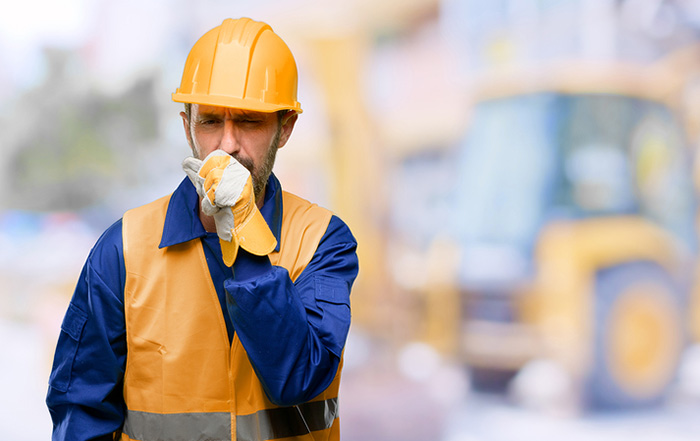 Winter and the cold, wet and windy weather it brings presents numerous hazards and can increase workplace risks. It’s important for everybody to have a proactive approach to managing winter-related risks, implementing controls and strategies for staying safe. Some of the key risks include:
Winter and the cold, wet and windy weather it brings presents numerous hazards and can increase workplace risks. It’s important for everybody to have a proactive approach to managing winter-related risks, implementing controls and strategies for staying safe. Some of the key risks include:
Cold Hands
Working in cold weather without appropriate gloves and clothing to keep you warm can lead to reduced sensation in the fingers and a loss of dexterity and control.
This is especially true if handling cold, wet or oily materials without appropriate gloves which will see moisture soak through the gloves and potentially lead to loss of control or frostbite.
Leather gloves are not recommended in such conditions as they are not waterproof and can become slippery when wet.
Instead, gloves such as the ProSense Stinga Frost Gloves, the ArcticPro Winter Glove, or the Ninja Ice Glove can all be excellent choices to keep your hands warm and mobile even in harsh conditions.
Muscle Strain
When it's cold, your muscles lose a lot of their flexibility, making your body have to work harder to do what you normally would. In addition to tiring you out faster, less flexible muscles are more easily strained from overuse, leading to a higher risk of overexertion or even repetitive strain injury. The cold can even reduce blood circulation - being chilly is no joke.
To manage this, you need to try and stay warm - all of your body, not just your hands. Keeping your core warm is crucial, and can rely heavily on properly using hard hat winter liners, clothes like jackets and jumpers, and staying covered as much as possible. Some workplaces may even suspend operations as it gets cold, and hold out until spring or summer to recommence work.
Roadworks and Driving
Vehicle accidents around roadworks increase significantly during winter, for a multitude of reasons. Not only is winter often cold, wet and rainy - perfect conditions for your vehicle slipping on the road or not being able to break in time - but shorter days and less light means that roadworks spend longer in the dark, or sunrise/sunset hours. This leads to visibility issues that easily result in unfortunate accidents on the road. Even the wind is dangerous, potentially causing some large vehicles to roll.
Wind in the Workplace
At work, the wind can prove a issue, particularly for construction sites or anything else at heights. Not only is wind stronger at heights - there's less things in the way to slow it down - but if the wind blows anything away, gravity will do a lot of work towards turning that loose piece of scrap metal into a deadly spear just waiting for a victim.
Cold and Flu
Even if everybody's focused on a certain other illness, the good ol' cold and flu are still around, and still vicious. Getting vaccinated is an exemplary first step towards preventing winter illnesses from hitting hard. Another major cold and flu-related problem isn't even workers going on sick leave - it's sick workers not taking leave at all. Studies have shown that showing up while sick can often be worse for a business than not showing up at all, since your reduced productivity is worse than just taking the time off and handing your job to somebody else. Not to mention your chances of infecting somebody else.
Getting Chills
The most obvious yet the most overlooked, just getting cold can be a massive danger for workers - yes, even in Australia. Hypothermia is bandied about as something that only happens in the Arctic, or on a mountain, but it doesn't even have to be below freezing for hypothermia to set in. The human body is a lot better at dealing with heat exposure than cold exposure, and something as small as some particularly brisk winds could be bad enough to lead to hypothermia. Wet clothing, too, is a wet shoe-in for the condition.
Some of the symptoms to watch out for when it gets cold are numbness of the hands or fingers, uncontrolled shivering, loss of fine motor skills, slurred speech, difficulty thinking clearly and irrational behaviour. If any of these show, you should chuck on an extra layer and get somewhere warm.
For further details on winter safety, check out the ProChoice blog post here





